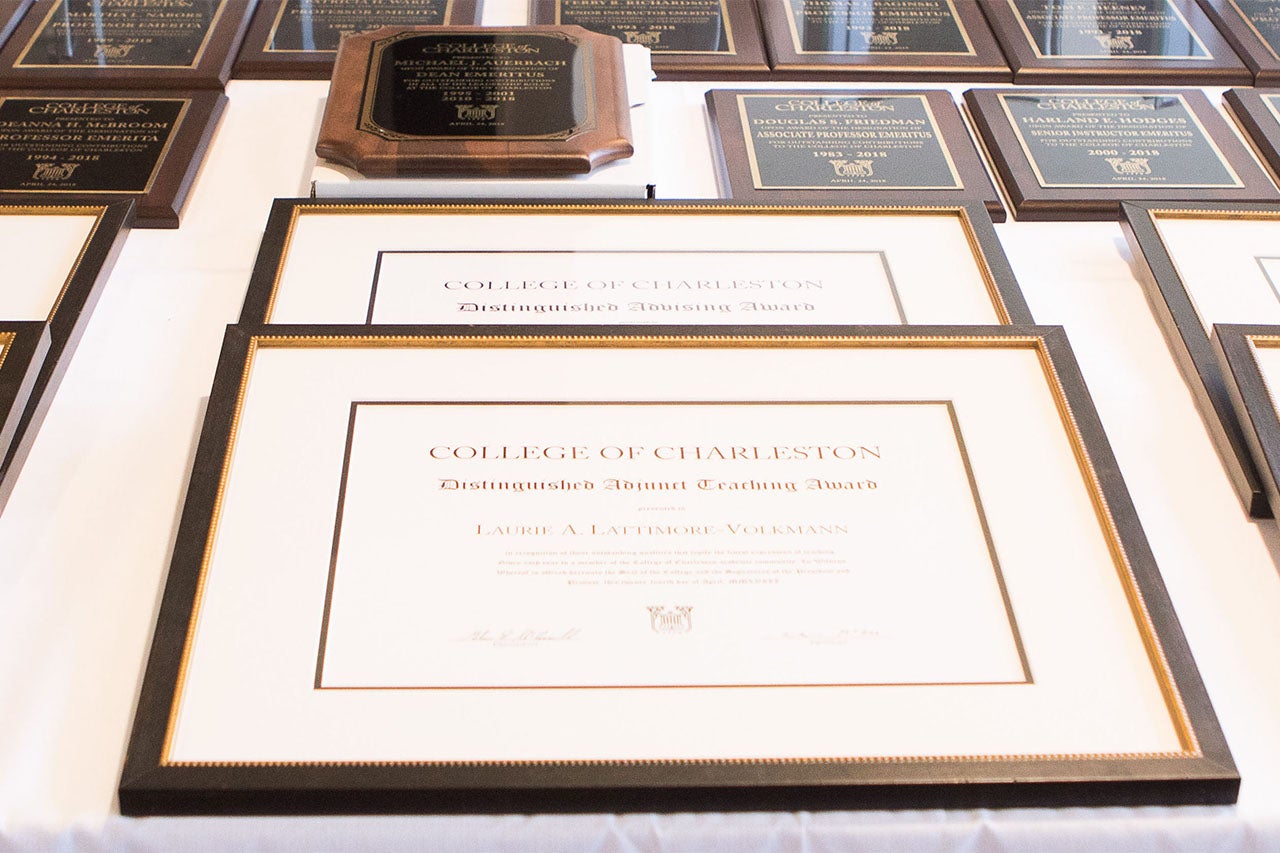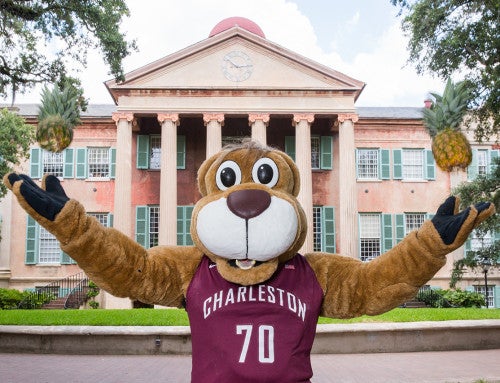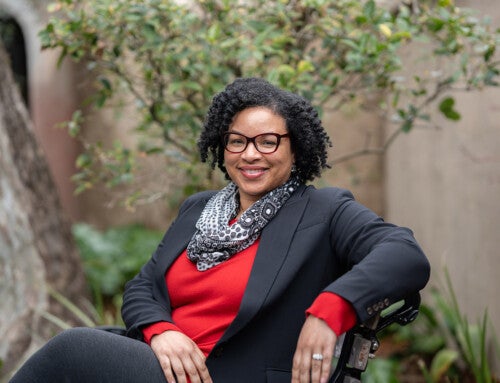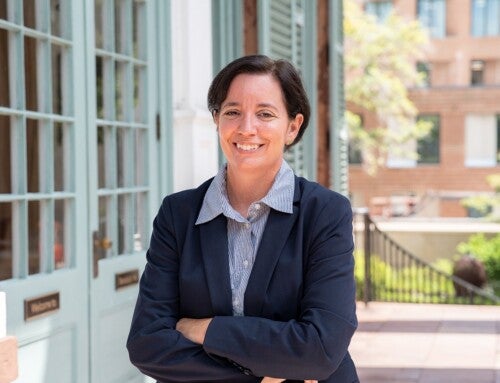Every spring the Office of the Provost and Academic Affairs recognizes six outstanding faculty members who demonstrate excellence in various areas of advising, teaching and research through a series of awards. And, although the College was unable to honor these faculty in person at the annual Celebration of Faculty this year, it is proud to recognize the 2020–21 distinguished faculty awardees.
“It is my pleasure to announce the College of Charleston 2021 Distinguished Faculty Award recipients,” says Suzanne Austin, provost and executive vice president of academic affairs. “Each of our award recipients has demonstrated exemplary work and commitment going above and beyond expectations in order to serve their students, the College and our campus community.”
The full list of faculty members recognized this year – including those named emeriti faculty and those granted tenure and promotion, renewals, positive third-year reviews, post-tenure reviews and sabbaticals – is available in the 2021 Celebration of Faculty Virtual Program.
William V. Moore Distinguished Teacher-Scholar Award: Timothy L. Carens
The William V. Moore Distinguished Teacher-Scholar Award honors faculty members who exemplify the teacher-scholar model, enriching the intellectual lives of students throughout their careers.
The 2021 William V. Moore Distinguished Teacher-Scholar Award recognizes Tim Carens, professor of English, for actively and generously enriching many students’ intellectual lives. Carens personifies the the teacher-scholar model, guiding students’ scholarly work through to publication and securing funding for extended summer research that supports scholarly production, preparing them for graduate study.
As a prominent scholar and leader within Victorian studies, Carens has taught undergraduate and graduate English majors, as well as courses for Honors and first year students, over his 23 years at the College. He focuses on student-driven research projects, encouraging students to leave the class feeling that they are working members of a profession. He has adopted a long-term strategy, leading students through a series of classes and research projects designed to nurture professionalization.
Carens has nurtured students’ developing research skills and scholarly identities by advising 30 tutorials, independent studies, bachelor’s essays and master’s theses, mentoring them to present at academic conferences. He has also worked with eight undergraduate students on extended projects supported by SURF and/or MAYS grants.
A longstanding advocate of student research and scholarship, Carens has served on the Undergraduate Research Advisory Liaison committee since 2003 and served as the editor-in-chief of Chrestomathy, the College’s interdisciplinary journal for undergraduate research, shepherding hundreds of students through a competitive process of rigorous review and editing from 2005 to 2013. Carens has also introduced many students to the benefits of international scholarship through the London summer study-abroad experience he directs.
Distinguished Teaching Award: Amy L. Rogers
The College of Charleston’s Distinguished Teaching Award honors faculty members who are outstanding among the College’s many exceptional teachers, and the 2021 recipient is Amy Rogers, senior instructor in the Department of Chemistry and Biochemistry.
Since joining the College in 2002, Rogers has exemplified a commitment to teaching excellence both in her department and in the First-Year Experience. Her teaching stands out for its thoroughness, thoughtfulness and rigor and for the uncompromisingly high standard to which she holds herself and her students at every level. She invests deeply in her students, guiding them through their years on campus and beyond. She pushes students to understand the content and its relevance to their lives. Outside class, she is an avid and devoted mentor who regularly advises undergraduate research and helps students secure the funding they need to present their research at conferences.
Rogers was also named TIAA-CREF Distinguished Professor for the Southern Conference in 2006 and held the William Mebane Distinguished Teaching Chair in Chemistry and Biochemistry from 2012 through 2016.
Distinguished Adjunct Faculty Teaching Award: Emily C. Lee
The College of Charleston’s Distinguished Adjunct Faculty Teaching Award honors adjunct faculty members who are outstanding among the College’s many exceptional teachers. This year’s award recipient is Emily Lee, a dedicated adjunct faculty member in the Department of English since 2013.
Lee teaches extensively in the College’s First-Year Writing Program, offering both online and face-to-face sections of English 110: Introduction to Academic Writing. She is recognized by students and colleagues alike as a master teacher whose passion and knowledge for her subject allow her to bring it to life. A consummate learner, she actively seeks opportunities for professional development and continually enriches her courses with cutting-edge pedagogy and technology. She works diligently to build an inclusive and supportive community in the classroom.
Outside class, Lee has helped to support the larger First-Year Writing community by collaborating in the design and implementation of a new staff syllabus for English 110. English faculty new to online teaching look to Lee for guidance and support in this area and praise her for her expertise and unsparing generosity.
Distinguished Research Award: Anthony E. Varallo
The College of Charleston’s Distinguished Research Award recognizes faculty who have a significant career of research – demonstrated by the body of a faculty member’s scholarly and/or creative works within the past few years and evaluated based on their quality and significance as well as their quantity.
This year’s award goes to Anthony Varallo, English professor, who – since joining the College in 2005 – has published five books and over 80 short stories in literary magazines and journals such as The Iowa Review, New England Review, American Short Fiction, Harvard Review, The Sun and The Gettysburg Review, among others. In the past calendar year alone, Varallo has published 21 new short stories, an essay and a reprint in an anthology.
Varallo’s books have won many accolades: His first novel received a starred review from Kirkus Reviews; his first short story collection won the John Simmons/Iowa Short Fiction Award and was a finalist for the 2006 Paterson Fiction Prize; his second short story collection was the winner of the 2008 Drue Heinz Literature Prize; his third short story collection was named a finalist for the Balcones Fiction Prize; and his fourth short story collection won the Elixer Press 2016 Fiction Prize. His individual stories have received honors from the Micro Awards, the Story South Million Writers Award, the Ploughshares blog and Catapult magazine.
Varallo – who also serves as the fiction editor of Crazyhorse, the literary journal at the College of Charleston – has given panel presentations at the Association of Writers and Writing Programs Annual conferences and has taught weeklong and weekend fiction writing courses at the Iowa Summer Writing Festival for the past 11 years.
Distinguished Service Award: George J. Pothering
The Distinguished Service Award recognizes the outstanding contributions of a colleague who, beyond his or her required duties, has a sustained career of serving the college community in an outstanding and distinguished manner. The 2021 Distinguished Service Award honors George Pothering, professor of computer science, who – during his 40-plus years at the College of Charleston – has demonstrably put service to the institution very high.
Pothering joined the College as a mathematics faculty member, but was asked to participate in a National Science Foundation (NSF)-sponsored program at the University of South Carolina that helped college faculty learn computer science and establish undergraduate degree programs in computer science at their own institutions. Through his participation in this program, Pothering became the first CofC faculty member with a formal education in computer science, and he helped establish the Department of Computer Science at the College of Charleston in 1980, which he officially joined in 1982. His decision to participate in the program was his first major act of service, setting the stage for his continued service to the College.
Since then, Pothering has served in numerous leadership roles serving his departments, his schools and on various committees across the organization. In addition, his national and international service contributions have helped promote and make the College of Charleston visible to colleagues around the world.
Distinguished Advising Award: Jacob W. Craig
The Distinguished Advising Award recognizes a roster faculty member who has demonstrated a dedication to students in the advising area – and Jacob Craig, assistant professor of English, certainly fits the bill.
Since he joined the English department in 2016, Craig has fostered connections with, between and among students, faculty, campus resources and post-graduation professional opportunities. His efforts are appreciated by students and colleagues alike. In fact, his colleagues have come to rely on him as the English department’s own in-house “advising guru.”
He not only serves his own individual advisees within the English major, but also additional students whom he advises in his role as director of the Writing, Rhetoric, and Publication concentration and minor. His exemplary advising also extends to English majors in the professionalization programs he has developed to help them prepare for post-graduation professional opportunities.
He is known for shepherding students toward professional careers in which they can thrive while making use of the knowledge gained and skills they developed as English majors. When advising students, Craig makes a point of helping them define, work toward and reach specific academic and professional goals in their very near and more distant futures.
By emphasizing the importance of professional guidance as well as academic advice, Craig has done much to extend the scope of advising outreach within his department. In doing so, he has demonstrated that the liberal arts in general – and humanities such as English studies in particular – remain vitally relevant even in this digital age.










